Newspaper’s staff picks leading stories of busy year
Teacher strikes that delayed the start of the school year in most of Clark County was the biggest story of 2018, according to a vote of The Columbian’s newsroom, followed by the September opening of Vancouver’s new waterfront and the midterm elections.
News staff picked the 10 biggest stories of the year from a list of 27 nominees, and then voted on which they thought was the biggest. Teacher strikes and the waterfront opening both appeared on 23 of 25 returned ballots, but teacher strikes earned the top spot with nine first-place votes.
The continuing saga of former Living Hope Church pastor John Bishop — featured in a six-part series in The Columbian earlier this year — received the second most first-place votes with five.
Here are recaps of the year’s top stories:
Enlarge
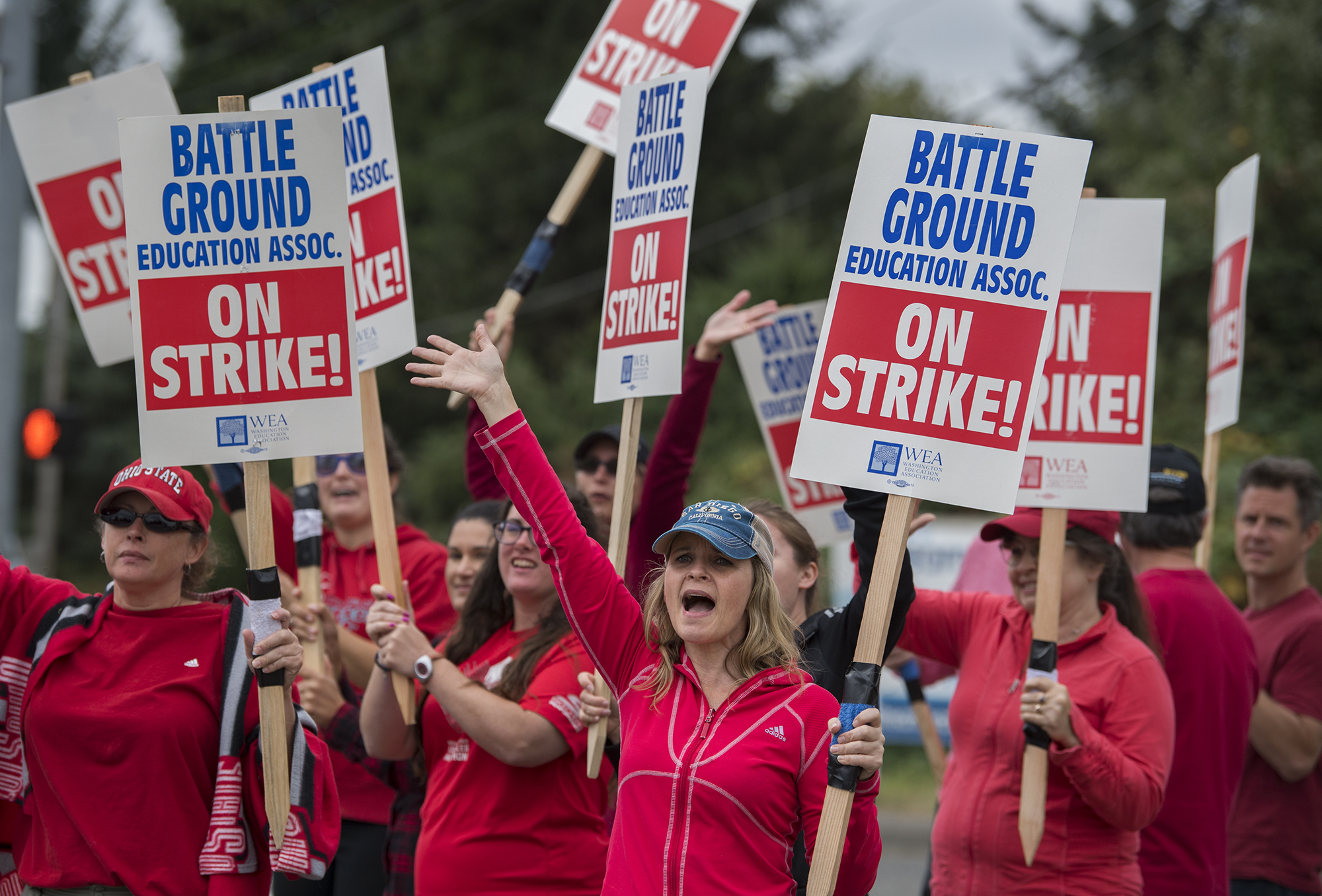
1. Teacher strikes
Faced with a Supreme Court order, the 2017 Legislature approved $7.3 billion in new state funding for schools to be spread over four years, followed by another $1 billion in 2018 for teacher salaries. But disagreements over how the money should be spent prompted heated negotiations and, in 15 districts across the state, teacher walkouts.
Nowhere was that more concentrated than here in Southwest Washington, where teachers in seven districts took to the picket lines, delaying the first day of school in Evergreen, Vancouver, Battle Ground, Hockinson, Ridgefield, Washougal and Longview. The strikes resulted in double-digit percent pay raises for many teachers, but districts maintain that the multimillion-dollar contracts will result in program cuts and spending of reserves. Districts should know more next summer, when budgets will be up for review.
Not all the labor disputes are settled. The Vancouver Association of Educational Support Professionals also threatened a strike, but reached a tentative agreement minutes before the start of winter break.
— Katie Gillespie
2. Waterfront Vancouver opens
The promised redevelopment of Vancouver’s waterfront became reality in 2018.
September openings of two restaurants — WildFin American Grill and Twigs Bistro — offered a taste of what is to come to The Waterfront Vancouver.
At a heavily attended event Sept. 29, Vancouver’s landscaped 7-acre park was opened. The park’s riverside pathway and dramatic 90-foot Grant Street Pier were immediately popular as fine weather persisted well into October.
Much more development is anticipated. More eateries, two apartment complexes and an office building should open in 2019, and a hotel is under construction. The Port of Vancouver envisions a second hotel and a public market at its adjacent Terminal 1 property.
— Allan Brettman
Enlarge

3. Midterm elections
The Democrats’ blue wave didn’t reach all the way to Clark County on election night. Republicans prevailed in almost every contested race.
First-term state Rep. Vicki Kraft, R-Vancouver, beat Democratic challenger Tanisha Harris, who had the backing of both of Washington’s U.S. senators and other party heavyweights. Republican newcomer Larry Hoff defeated Democrat Kathy Gillespie, a former school board member who mounted a strong fundraising and campaigning effort.
Republican County Councilor Eileen Quiring edged Democrat Eric Holt for the council chair position. After a tense and expensive campaign, U.S. Rep. Jaime Herrera Beutler, R-Battle Ground, won a fifth term representing the 3rd Congressional District, although her opponent, Democrat Carolyn Long, received slightly more votes in Clark County.
One notable accomplishment for the Democrats was Temple Lentz’s victory over incumbent Republican Jeanne Stewart for a county council seat. Lentz will become the first and only Democrat to serve on the council.
— Jake Thomas
Enlarge
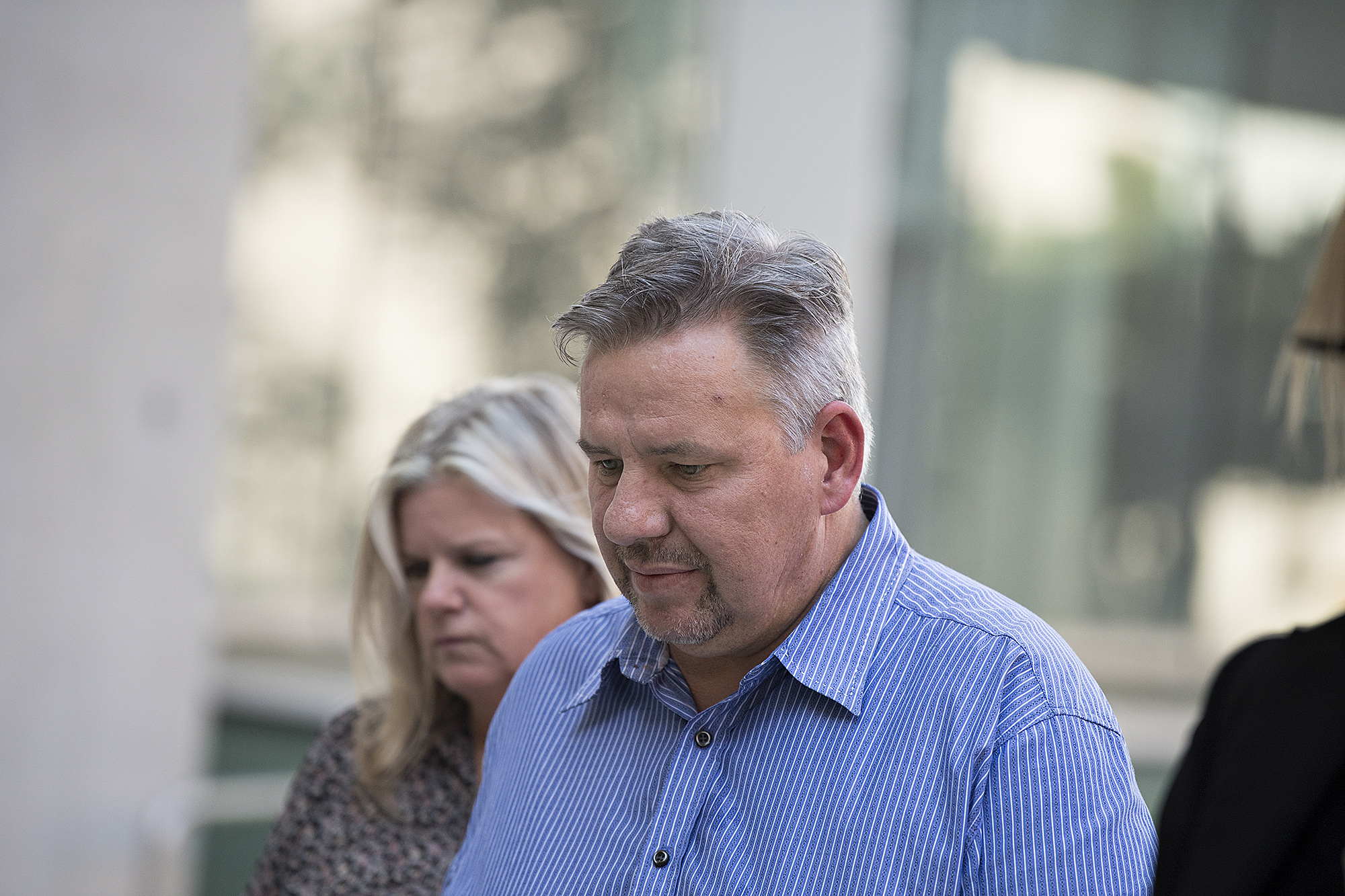
4. John Bishop’s saga
After a long and contentious legal process, former Living Hope Church pastor John Bishop was sentenced to five years in federal prison for smuggling almost 300 pounds of marijuana into the United States from Mexico.
Bishop, 55, had achieved great success as a founder and senior pastor of the megachurch — building it to a weekend attendance of 6,500 at the former Vancouver Kmart store — before an extramarital affair and substance abuse issues led to his ouster in November 2015. Allegations of financial mismanagement of church funds followed.
The story of how the former pastor ended up in federal custody was detailed in a series of Columbian stories published in September.
Bishop is appealing his five-year sentence, despite telling the judge at sentencing that “one hundred percent, your judgment is what God wants.”
— Jessica Prokop and Patty Hastings
Enlarge
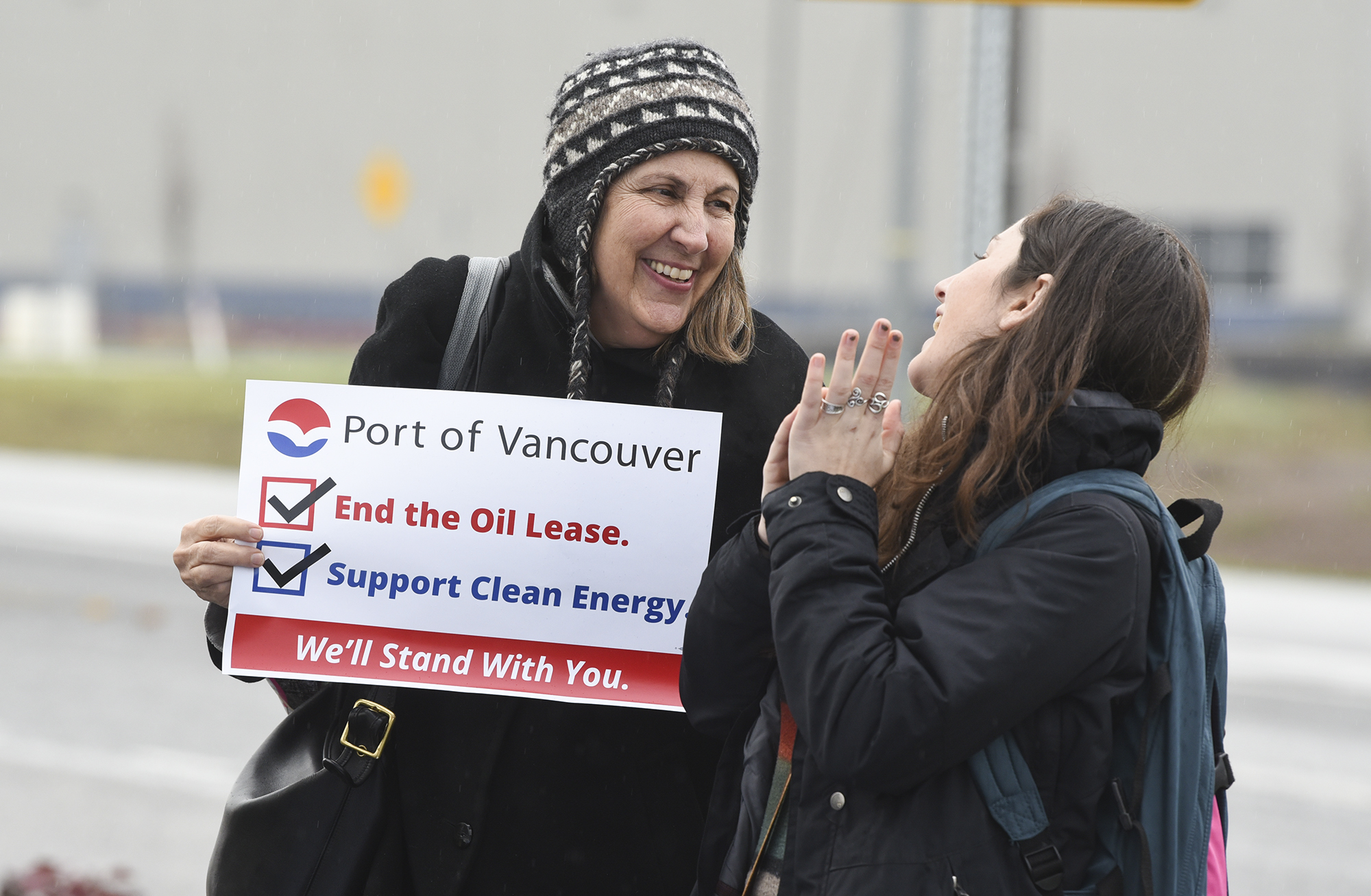
5. (tie) Oil terminal rejected
The proposed Vancouver Energy oil terminal was officially rejected in 2018 following years of intense public debate.
Gov. Jay Inslee announced his decision on Jan. 29, listing multiple potential risks including oil spills, fire and instability in the event of an earthquake. The Democratic governor also cited the work of the state’s Energy Facility Site Evaluation Council, which spent four years researching the proposal and unanimously recommended its rejection.
The $210 million terminal would have been the largest of its kind in the United States, capable of transferring an average of 360,000 barrels of crude oil per day from tanker trains at the Port of Vancouver to ships in the Columbia River.
— Anthony Macuk
Enlarge
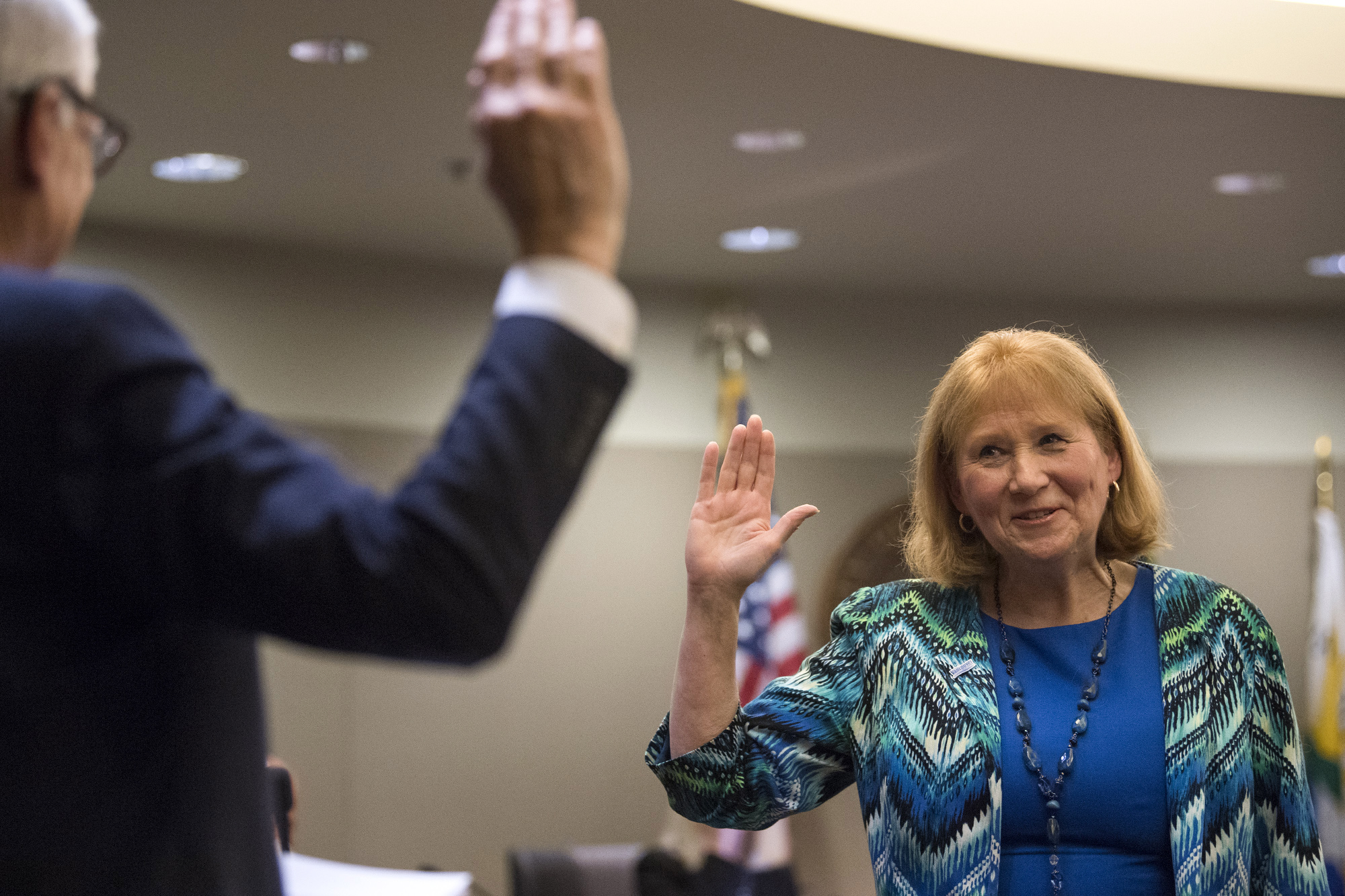
5. (tie) McEnerny-Ogle becomes mayor
Anne McEnerny-Ogle became Vancouver’s new mayor, and also the first woman to hold that office.
McEnerny-Ogle said she was surprised to learn she would in fact be the first woman elected as mayor.
McEnerny-Ogle won the seat in 2017 with 75 percent of the vote. She ran against four men who lacked experience in local government as well as their communities. She hoped to not only use her position as mayor to serve the community, but to serve as a role model for the next generation.
“Has it taken all of these years for the women nationally to see the shoulders of women ahead of them and to aspire to them and have the confidence to go after that? Maybe so,” McEnerny-Ogle said.
— Katy Sword
Enlarge
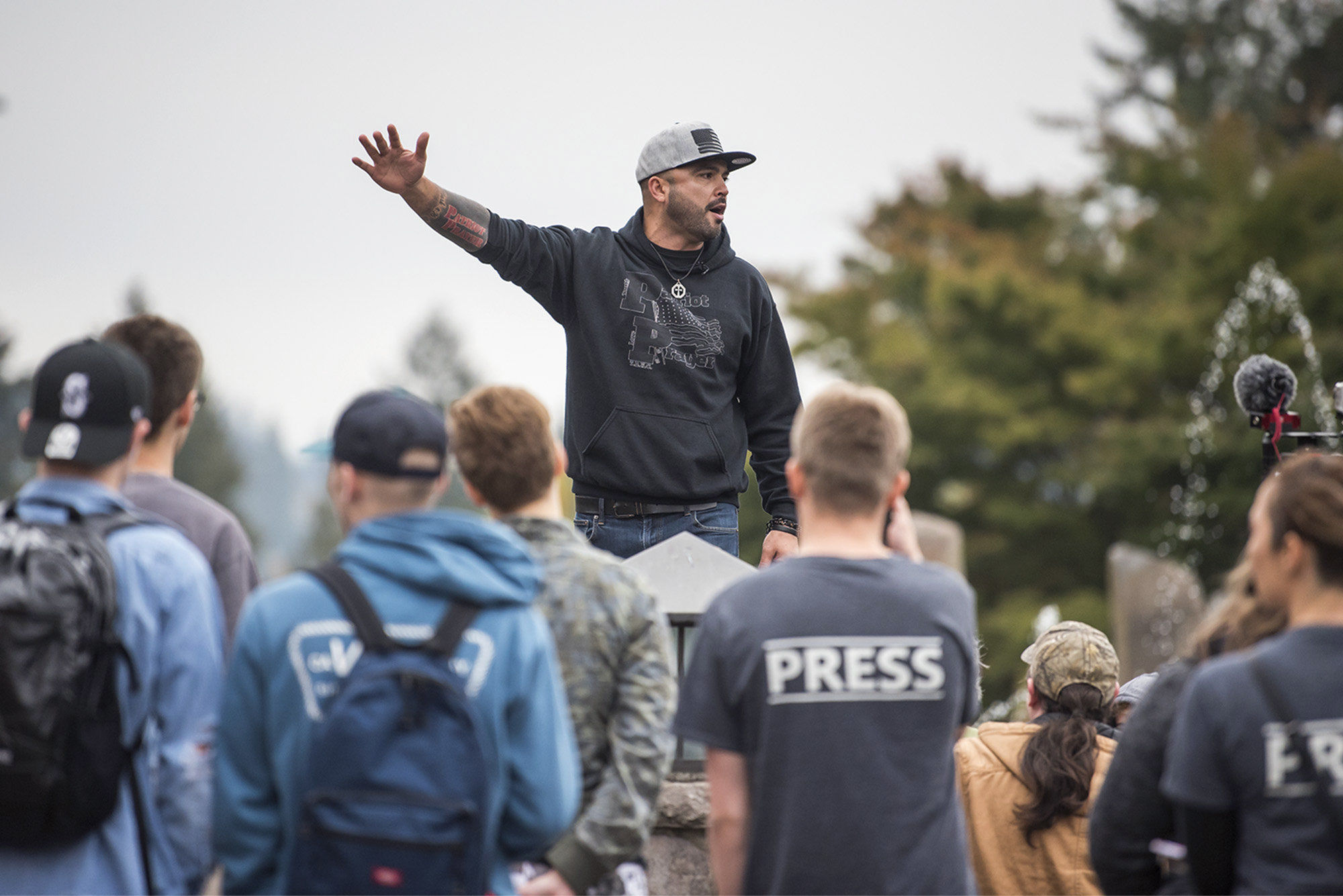
5. (tie) Patriot Prayer/sheriff’s deputy fired
The organized far right remained in the news locally and nationally in 2018. Local activist Joey Gibson, perhaps known best for his Patriot Prayer organization’s agitation in Portland, ran for U.S. Senate in 2018, only to be knocked out in the primary with just 5.4 percent of the vote.
In October, Gibson and Patriot Prayer organized demonstrations at Clark College (twice) and Washington State University Vancouver in protest of a gun-control initiative on November’s ballot. Considering staff and student concerns with the group’s history of provoking counterprotests, leading to violence, Clark canceled classes. The three events were largely small and docile.
Meanwhile, over the summer, a Clark County sheriff’s deputy was fired after photos surfaced of her wearing gear emblazoned with logos of the Proud Boys, a far-right nationalist group seen in instances of political violence around the country.
— Andy Matarrese
Enlarge
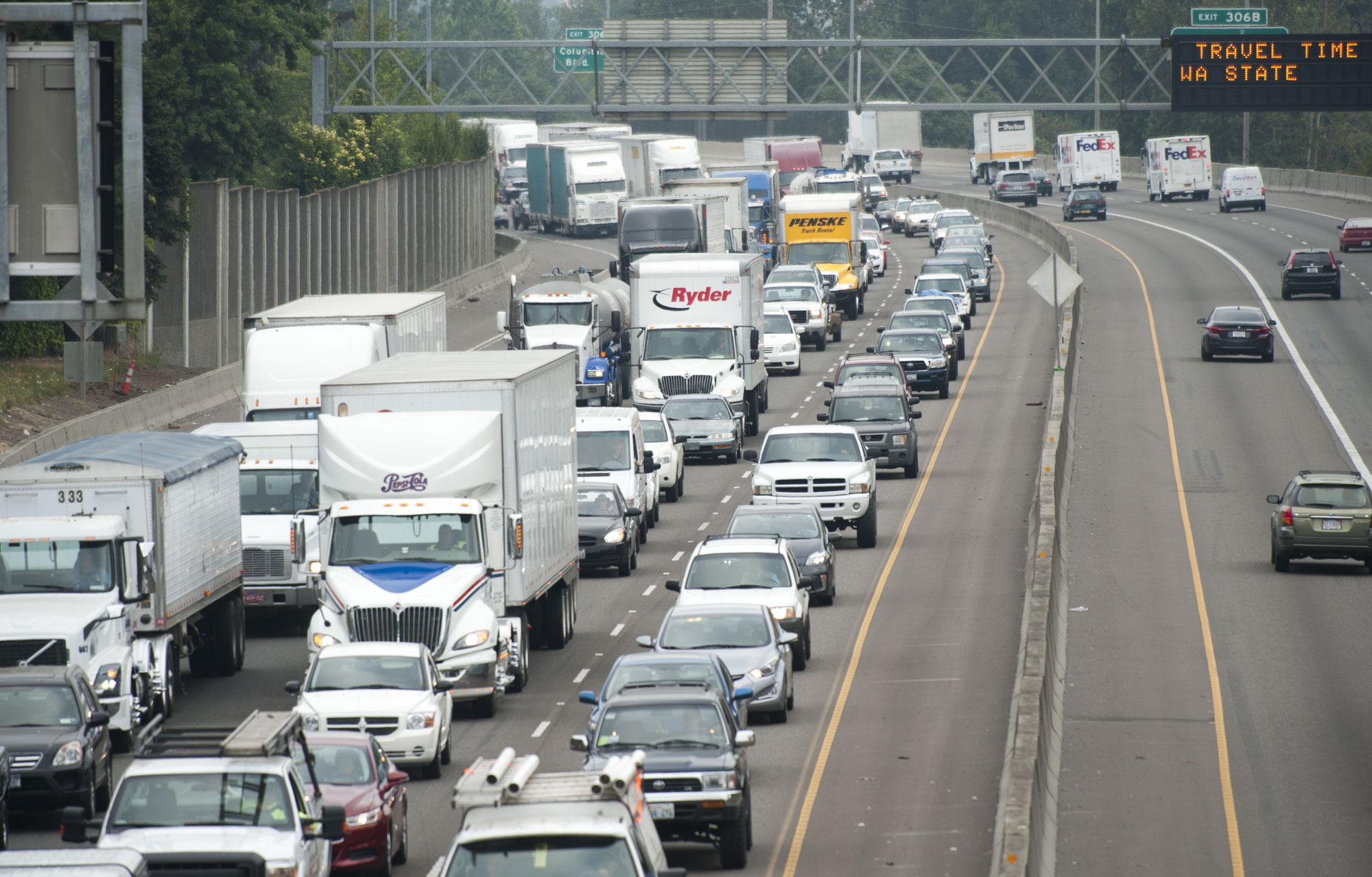
8. (tie) Freeway tolling
In 2018, not many topics generated comments like the prospect of drivers paying tolls.
The Portland Region Value Pricing Advisory Committee was tasked this year with putting together a list of tolling recommendations to help pay for infrastructure improvements, congestion-reducing projects and mass transit. The Portland City Council made waves over the summer when it sent a letter to the Oregon Transportation Commission urging immediate tolls on all lanes of the Interstate 5 and Interstate 205 bridges.
In the end, the committee chose a more modest proposal. If the current plans go forward, the tolled areas will be Interstate 5 between Southwest Multnomah Boulevard and Northeast Going Street, a roughly 7-mile stretch through the heart of Portland, and Interstate 205 in and around the Abernethy Bridge near West Linn and Oregon City.
As the year comes to a close, regional transportation officials are waiting on approval from the Federal Highway Administration before moving forward with environmental reviews, economic analysis and solicitation of public input.
— Calley Hair
Enlarge
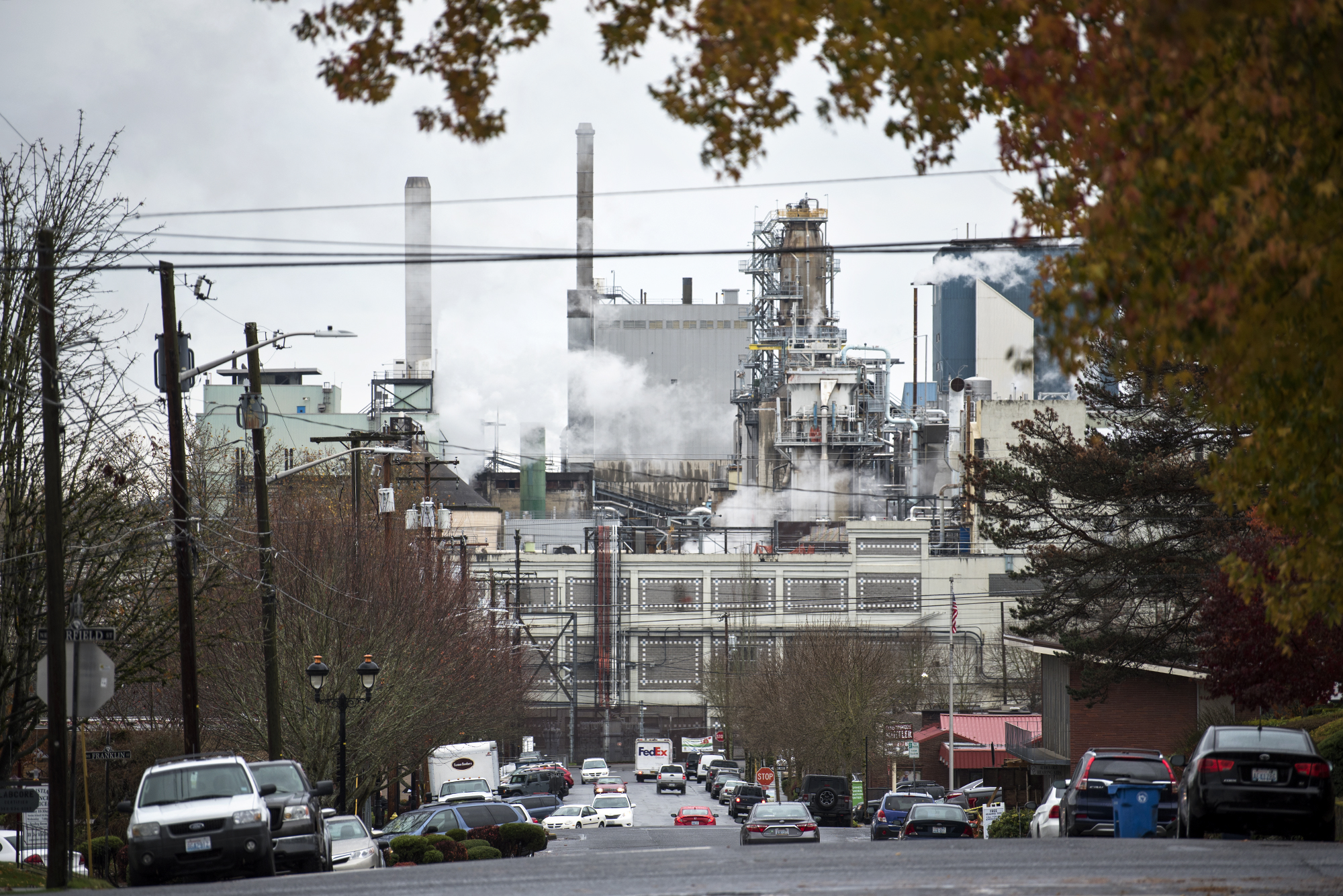
8. (tie) Camas mill reductions
Georgia-Pacific announced in November 2017 that it was going to shut down the communications paper division at the Camas mill. Beginning in May, up to 300 millworkers lost their jobs, leaving between 120 and 140 employees remaining at the mill, which once employed around 2,400.
Georgia-Pacific also started divesting the 900-plus acres of property it owned. In September, it donated about 181 acres to Camas for green space and recreation. The total land donation — which includes two dams, the mill ditch area and areas along the shorelines of Lacamas Creek and Washougal River — was appraised at $960,000 on Aug. 15, according to Georgia-Pacific spokeswoman Kristi Ward.
— Adam Littman
Enlarge

10. Homelessness/affordable housing
Homelessness rose 6 percent this year and the lack of affordable housing continued to plague Clark County.
The city of Vancouver grappled with several related issues, including the opening of the Vancouver Navigation Center. An appeal filed by people who live near the center stalled the process. The facility opened in November.
Homelessness wasn’t just a Vancouver concern; it impacted Clark County’s smaller, more rural cities.
However, this year’s increase in document-recording fees will bolster existing services addressing homelessness. And, Vancouver’s Affordable Housing Fund distributed money to build more affordable homes and to improve homeless shelters.
Meanwhile, builders planned more creative affordable housing options, such as attached homes and cottage developments. The Clark County Council supported a resolution encouraging condominium construction. And, locals showed more interest in accessory dwelling units.
The city plans to focus much of its 2019 legislative agenda on affordable housing.
— Patty Hastings
Top 10 stories of 2018
(as selected by Columbian readers)
1. Teacher strikes
2. Midterm elections
3. Vancouver waterfront opens
4. Affordable housing crisis/Homelessness
5. Oil terminally rejected
6. John Bishop’s saga
7. Gun violence and school walkouts
8. Two Clark County high school football teams win state titles
9. Patriot Prayer/sheriff’s deputy fired
10. Battle Ground Public Schools can’t pass a bond while bursting at the seams, and is looking to change boundaries
Top 10 columbian.com stories
(ranked by page views)
1. Deputy fired over Proud Boys ties (July 20)
2. John Bishop arrested in California (Jan. 16)
3. Three dead, six injured in two wrong-way DUI crashes in Vancouver (Feb. 11)
4. Portland City Council pushed immediate tolls on I-5 (July 11)
5. Evergreen principal accused of sexual misconduct (June 22)
6. Police: One person fatally shot in Hazel Dell parking lot
(Dec. 11)
7. Patriot Prayer meeting point moved (Aug. 4)
8. Crash at Columbia River High School kills one (March 6)
9. One held, one hospitalized after samurai sword attack in Camas (March 3)
10. Vancouver man in court in death of girl, 5 (Nov. 5)